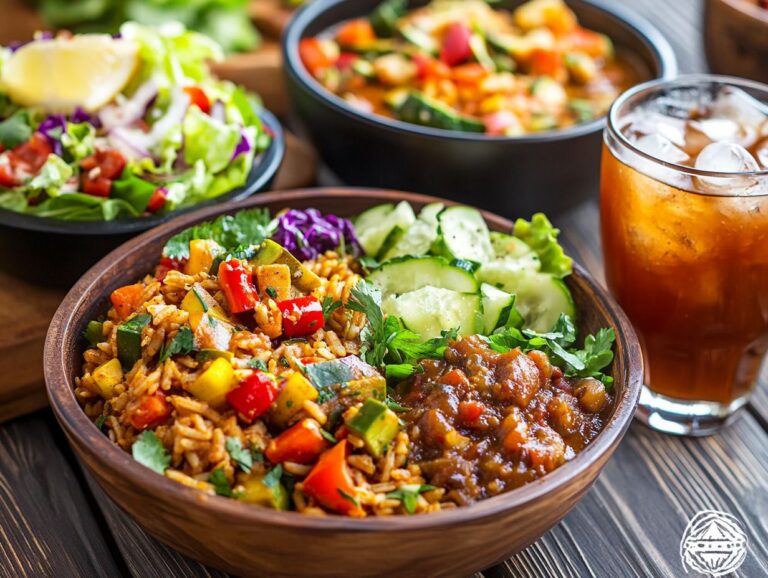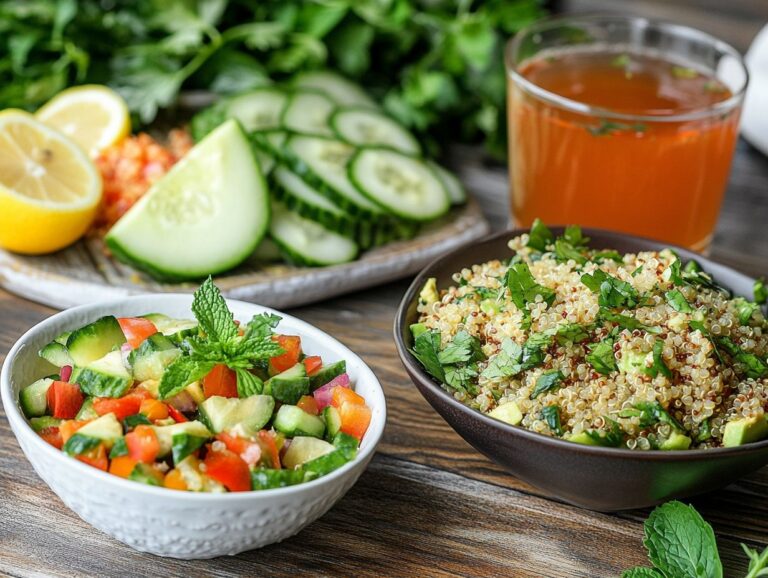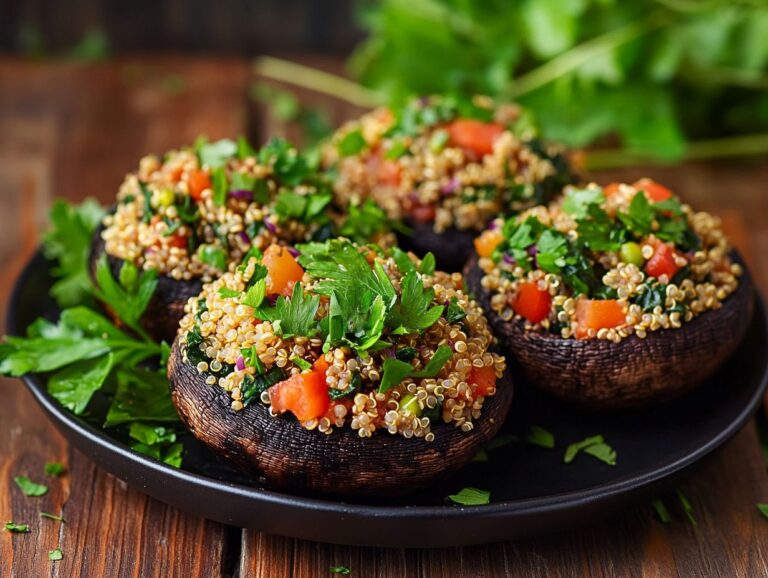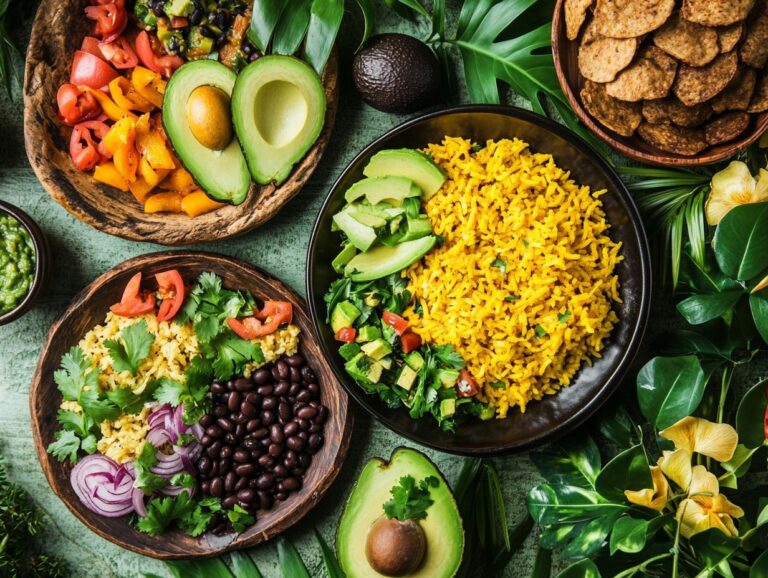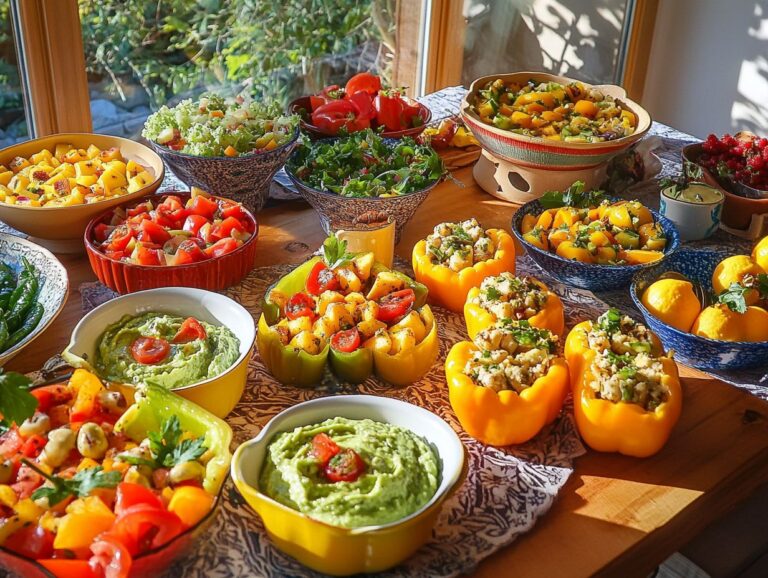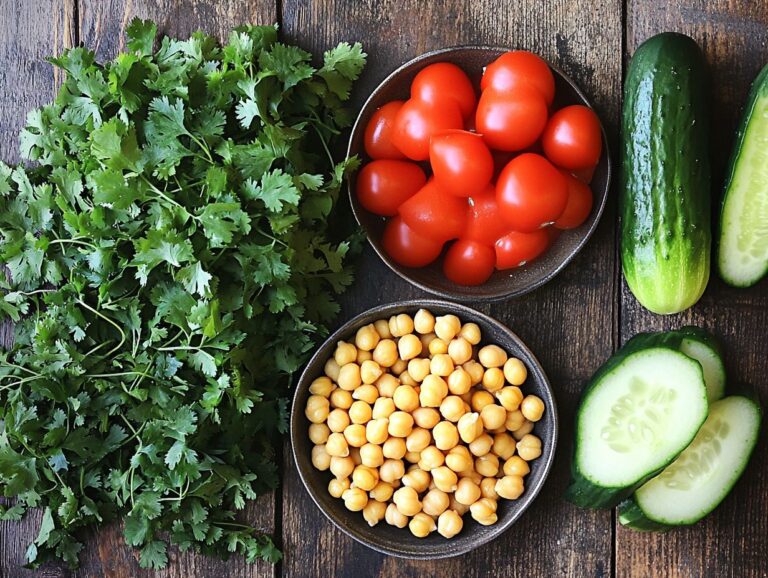Gastroesophageal reflux disease (GERD) can be a challenging condition; however, understanding its causes and triggers is the first step toward effective management. This article examines what GERD is and the common factors that contribute to its symptoms. It then shifts focus to the potential benefits of adopting a vegan diet for individuals with GERD, offering a variety of delicious, GERD-friendly recipes for every meal of the day. Additionally, you will find practical tips on meal planning and lifestyle adjustments to help you thrive on your journey to improved digestive health. Whether you are a seasoned vegan or simply curious about dietary changes, there is something for everyone to explore in this article!
Understanding GERD and its Causes
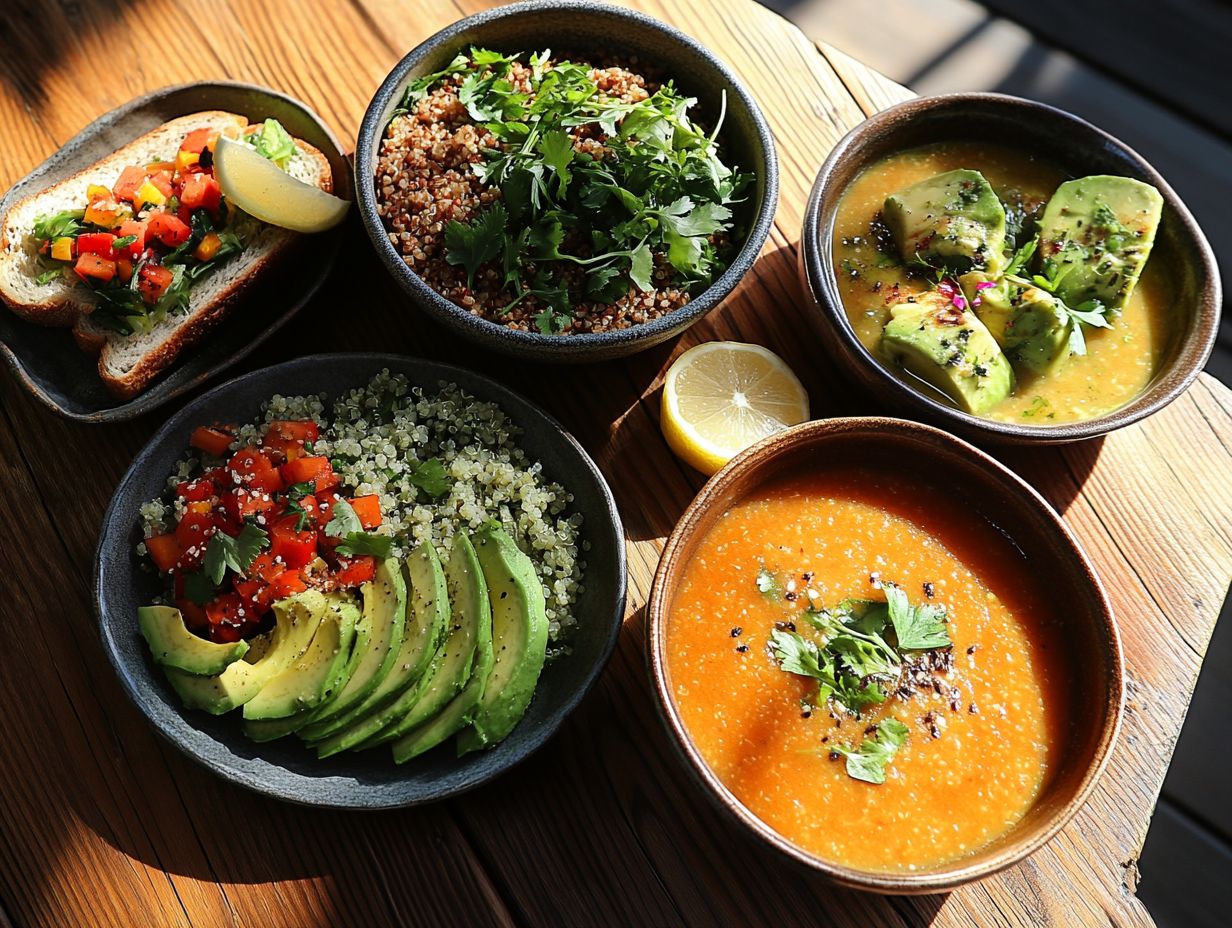
Gastroesophageal reflux disease (GERD) is a chronic condition that affects millions of people worldwide. It is characterized by the backflow of stomach acids into the esophagus, leading to symptoms such as heartburn and acid reflux.
Understanding GERD is crucial, as it can significantly impact an individual’s quality of life and requires careful management of food choices, particularly for those with dietary restrictions.
As a disorder of the digestive system, gaining insight into the causes and triggers of GERD can help individuals manage and potentially alleviate symptoms, while also promoting better gut health through mindful eating and lifestyle adjustments.
What is GERD?
Gastroesophageal reflux disease (GERD) is a chronic digestive disorder characterized by the backward flow of acidic gastric juice from the stomach into the esophagus. This reflux can lead to symptoms such as heartburn, chest pain, difficulty swallowing, and regurgitation, all of which can significantly impair quality of life.
The backflow occurs due to a weak lower esophageal sphincter (LES), the muscle responsible for preventing food from re-entering the esophagus from the stomach. A malfunctioning LES can result in inflammation of the esophagus (esophagitis) and more severe complications, such as Barrett’s esophagus, where cellular changes can further increase the risk of cancer.
Persistent reflux disrupts the body’s normal digestive processes and can also cause chronic cough, laryngitis, and dental erosion. Patients with GERD often report that their overall health is affected, as they may experience difficulty sleeping, working, and socializing due to the discomfort and unpredictability of their symptoms, highlighting the importance of proper symptom management and hydration.
Understanding these mechanisms is crucial for effectively managing the condition, which includes adopting healthy cooking methods such as steaming, boiling, and baking to avoid high-fat foods.
Common Causes and Triggers
GERD has numerous common causes and triggers, which include lifestyle habits such as overeating and poor posture, as well as specific foods like spicy dishes, high-fat items, and citrus fruits that are known to increase inflammation within the digestive system.
Individuals with GERD often find that their symptoms worsen when they overeat or consume large meals close to bedtime, as this increases stomach pressure and promotes acid reflux.
Additionally, caffeinated beverages, alcohol, and chocolate can relax the lower esophageal sphincter, allowing stomach acid to flow back up into the esophagus. Smoking also exacerbates GERD by weakening the esophageal barrier.
Furthermore, individuals with low levels of physical activity or high stress may experience worsened symptoms, highlighting the importance of a holistic approach to managing the condition, which includes regular physical activity and stress management techniques.
Vegan Diet and GERD
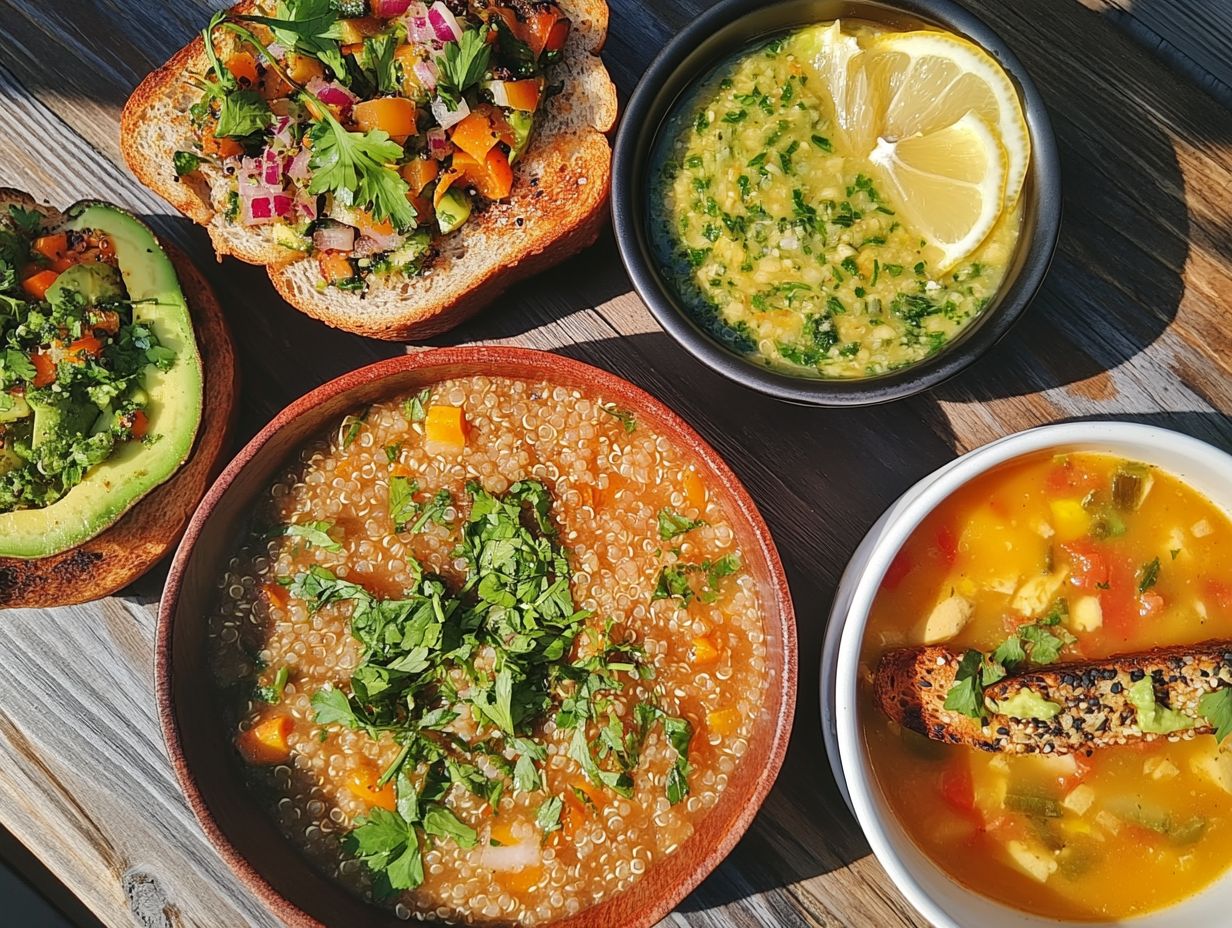
A vegan diet can be beneficial for individuals with GERD, as plant-based foods typically contain lower levels of fat and acid. This reduction can help decrease inflammation and enhance digestive health. Incorporating probiotics and fermented foods into the diet can further support the digestive system.
A well-planned vegan diet is rich in whole grains, fruits, and vegetables, which can alleviate reflux symptoms while supplying essential nutrients and fiber that promote gut health. Additionally, including legumes and nuts can provide healthy fats and protein necessary for a balanced diet.
How a Vegan Diet Can Help with GERD
A vegan diet may help manage GERD by promoting the consumption of low-acid, fiber-rich foods that support a healthy digestive system and reduce inflammation associated with reflux.
Incorporating a variety of fruits, vegetables, whole grains, and legumes can alleviate reflux symptoms due to the anti-inflammatory properties of plant-based foods. Additionally, fiber-rich foods enhance digestive health by improving gut motility and fostering a diverse microbiome, which can reduce the frequency of reflux episodes.
By avoiding high-fat animal products and processed foods, individuals can lower the likelihood of triggering acid reflux, leading to a more enjoyable meal experience and better long-term management of GERD. Utilizing food swaps such as almond milk instead of dairy can be an effective strategy.
GERD-Friendly Vegan Recipes
GERD-friendly vegan recipes offer a fantastic way to enjoy nutritious and delicious meals while adhering to dietary restrictions.
Each ingredient in these recipes is carefully selected to promote gut health and alleviate symptoms of acid reflux. Featuring fiber-rich grains, anti-inflammatory herbs and spices, and low-fat cooking methods, these recipes provide a balanced approach to wellness without compromising on taste.
Breakfast Recipes
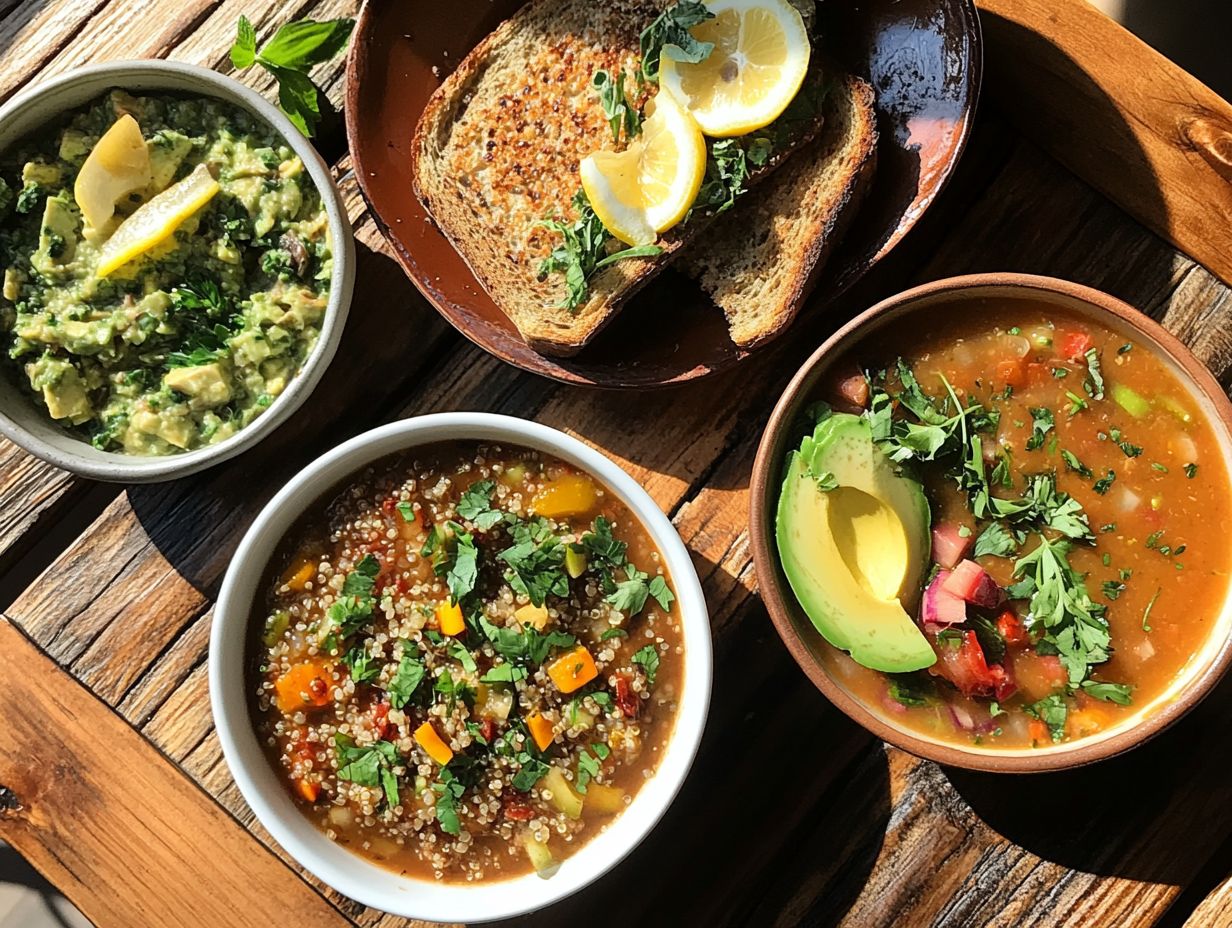
Vegan breakfast recipes for GERD are designed to start the day on a healthy note by incorporating foods that are rich in beneficial nutrients and gentle on the digestive system, such as oatmeal, smoothies, and fruit-based dishes.
By using healthy ingredients with low acidity and high fiber content, it is possible to create meals that are both satisfying and nutritious.
For instance, oatmeal serves as a warm and comforting base that can be enhanced with fruits like bananas and apples, which add natural sweetness and additional fiber.
Smoothies made with spinach, almond milk, and flaxseeds provide essential vitamins while also being filling, making them an excellent choice for breakfast.
Opting for these nutritious foods helps maintain steady energy levels throughout the day.
Lunch and Dinner Recipes
Lunch and dinner options for individuals with GERD should feature a variety of vegan recipes that incorporate a wide range of vegetables, whole grains, and healthy fats. These meals not only help manage GERD symptoms but also provide delicious and satisfying options.
By utilizing low-acid ingredients, these dishes cater to the palate while promoting optimal digestive health. Examples include bowls filled with quinoa, roasted sweet potatoes, and leafy greens, topped with a creamy tahini dressing, or hearty chickpeas served alongside a refreshing cucumber and avocado salad, lightly drizzled with olive oil.
Additionally, spices such as turmeric and ginger can be included in lunchtime and dinnertime meals to enhance flavor while offering inflammation-fighting properties that are beneficial for sensitive stomachs.
Snack and Dessert Recipes
Healthy vegan snacks and desserts can be both satisfying and friendly for those with GERD. By utilizing ingredients such as fruits, nuts, and seeds, these treats provide essential vitamins, minerals, and fiber without triggering reflux symptoms. Incorporating nutrient-dense foods like avocados and low-acid options can enhance the health benefits of these snacks.
Choosing low-acid fruits like bananas and melons, in combination with nutrient-rich nuts such as almonds and walnuts, allows individuals to enjoy delicious options while managing their dietary needs. Recipes that incorporate seeds like chia and flaxseed offer a fantastic source of omega-3 fatty acids, known for their anti-inflammatory properties. Including green smoothies and herbal tea can complement these treats by providing additional hydration and digestive support.
By combining these wholesome ingredients, a variety of options can be created, ranging from smoothies and energy balls to baked goods. This ensures that those with GERD can indulge guilt-free without sacrificing flavor or nutrition.
Additionally, incorporating whole grains and natural sweeteners like maple syrup can enhance these recipes, making snacking a delightful and health-conscious experience.
Tips for Following a Vegan GERD Diet
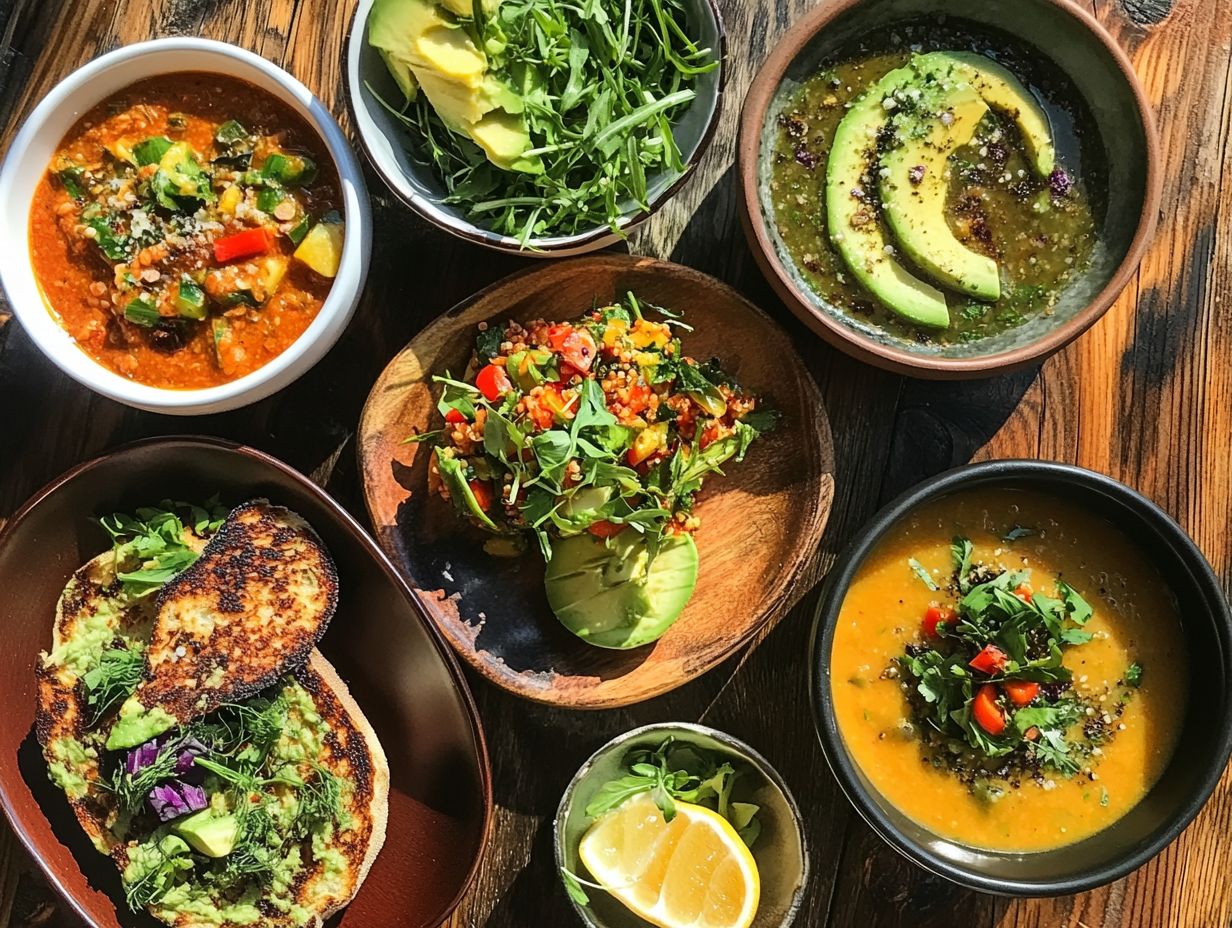
Successfully following a vegan GERD diet necessitates careful meal planning and portion control.
Additionally, incorporating lifestyle modifications that enhance overall well-being and support digestive health, such as staying hydrated and engaging in regular physical activity, is essential.
Meal Planning and Portion Control
Meal planning and portion control are essential elements of a vegan diet for managing GERD, as they promote both nutritional adequacy and a reduction in reflux symptoms.
By selecting appropriate ingredients and controlling portion sizes, individuals can significantly improve their digestive health. This approach allows for the inclusion of GERD-friendly foods such as leafy greens, whole grains, and legumes while minimizing the consumption of reflux-triggering items like citrus fruits, spicy foods, and high-fat foods.
To get started, one can create a weekly meal plan that incorporates a variety of these safe foods, focusing on smaller, more frequent meals instead of larger portions. This strategy not only aids in better digestion but also helps maintain energy levels throughout the day, making it easier to manage GERD symptoms effectively.
Other Lifestyle Changes to Consider
Along with following a vegan GERD diet, implementing other lifestyle changes can enhance gut health and overall well-being. Key practices include staying hydrated, practicing mindful eating, and avoiding trigger foods. Keeping a food diary can help track food sensitivities and improve dietary choices over time.
Hydration and Digestive Health: Understanding the importance of hydration is crucial, as drinking enough water throughout the day can stimulate the digestive process and alleviate acid reflux symptoms.
Mindful Eating: Mindful eating—eating when hungry, taking the time to savor each bite, and eating slowly—can help individuals maintain balance and prevent overeating.
Stress Reduction: Techniques for stress reduction, such as yoga and meditation, can also alleviate GERD symptoms by mitigating the impact of stress on the digestive system and reducing inflammation.
When combined with a vegan GERD diet that includes low-acid fruits, vegetables, whole grains, legumes, and nuts, these strategies create a more holistic approach to managing GERD while improving overall health. Incorporating probiotics, nutrient-dense foods, and healthy cooking methods like baking, steaming, and boiling can further enhance digestive health.
